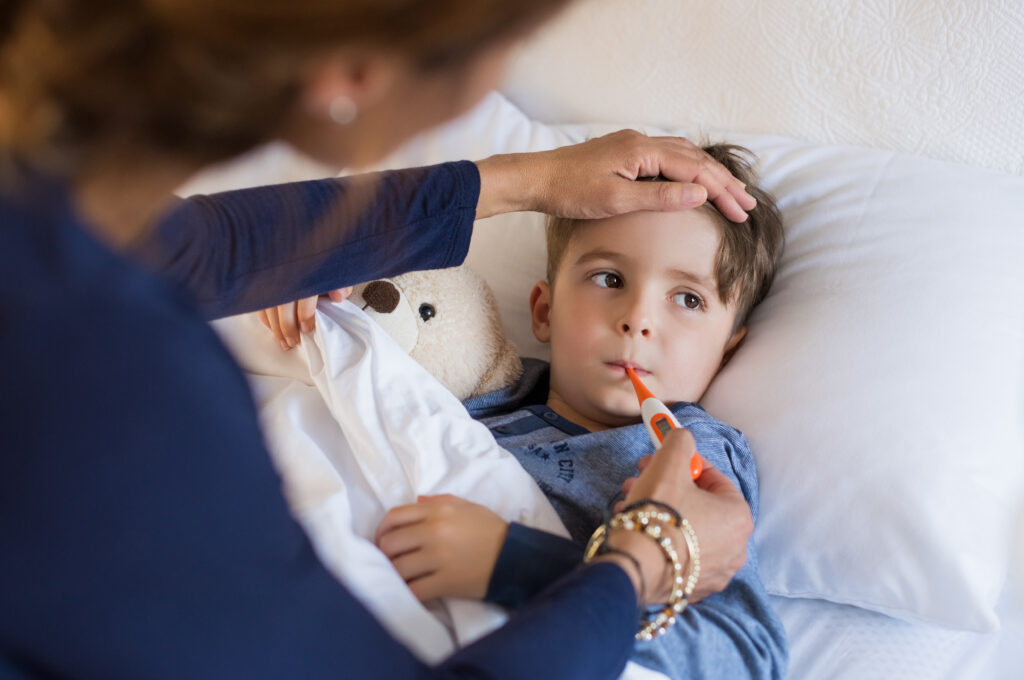7 things we wish we could tell all new mums
Becoming a mum is a transformative experience, but it’s also a steep learning curve. New mums have to learn to care for their baby as they deal with exhaustion, their changing body, fresh family dynamics and a whole new routine. It’s basically an extreme sport, so it figures that a little bit of coaching would come in handy!
Here’s what we wish all new mums could know:
1. Don’t worry about being a ‘perfect parent’. It’s a trap.
Instagram would have you believe that other parents are caring for their beautifully dressed babies in the stylishly furnished rooms of their incredibly neat homes. It may even have you losing sleep over whether to enrol in baby yoga, baby ballet or baby tai chi. Or lying awake wondering why your hair won’t stay in those effortless curls like the other mums. (Hint: Because it’s got some forgotten spit-up in it!)
It’s a great idea to narrow focus a little when it comes to social media and its expectations of new mums. Most of that stuff is smoke and mirrors anyway, so if you vow to avoid the perfect parent trap and be a good-enough mum you’ll do just great.
2. Get out of the house
While it can seem impossible to get both you and your baby presentable enough to head out the front door, managing to do it will pay dividends. Not only can you clear your head away from the chaos at home, but very often babies go to sleep too while you’re on the move – especially if you’re on foot pushing a pram – and you can snaffle some down-time (albeit with snoozing baby in tow) to grab a quiet coffee or wander the shops.
Another good thing about getting out is that you actually feel like you’ve achieved something outside of feeds and nappy changes, even if it was just picking up some chocolate biscuits at the supermarket.

3. Remember that mums matter too!
When a baby arrives, all eyes are on the little one and mums are sometimes forgotten in the excitement. Of course, new mums and their wellbeing should be paramount at this time too. If mums aren’t doing well there’s a knock-on effect with babies.
If the people around you seem to have forgotten about how you’re feeling, let them know how they might help. And if you’re having trouble communicating the challenges of parenting and recovering from having a baby, you could also chat to your GP or maternal child health nurse about how things are going. They will have ideas about how to best look after you, while you care for a bub. Don’t tough it out or assume you should be managing. It’s a very high pressure job with a vocal little boss!
4. Don’t go overboard buying lots of expensive baby products
It can seem like you need a lot of different products when you have a baby, but take your time gathering up your nursery must-haves. Obviously you need basics like bedding and somewhere for the baby to sleep, a car restraint, a pram, nappies and wipes and clothing. But don’t be too quick to snap up all kinds of random baby items you think you might need. Buy extra baby bits and bobs as you need them … if you need them. Also? Don’t think you have to match the expensive prams or heirloom cots that you see other parents showing off online. Work within your budget and choose what suits your family best.

5. Ignore unsolicited advice
When you have a baby, people come scuttling out of the woodwork to tell you how to raise your child. Before you know it, the neighbour who hasn’t talked to you in the three years you’ve lived side-by-side wants you to know that your baby needs an extra blanket or that their socks are too woolly. Sigh. And it’s not just neighbours. Family members can tut-tut your parenting skills quietly and make you second-guess yourself.
Try to ignore all that noise if you can. Turn to a few trusted people – close family, GP, best friend and/or maternal and child health nurse and chat to them about any parenting queries you may have.
6. Be flexible about feeding
While science tells us that “breast is best”, breastfeeding isn’t always possible. If breastfeeding doesn’t work out for you and your baby, know that your baby will love you and thrive, whether you feed them breastmilk or formula. Care for and feed your baby however you are able, and know that you’re doing a brilliant job.
7. Celebrate the small victories
Sometimes the best part of your day might be when you narrowly avoided getting vomited on by your baby or perhaps those aforementioned chocolate biscuits, eaten sitting on the front porch as your baby sleeps in the pram beside you.
Or maybe it’s managing to sneak out of the nursery after popping your snoozing bub into their cot? There’s lots of small moments worth celebrating each day, and not getting pooped on by a tiny person truly can be a huge win!
The information above is general in nature and the opinion of the writer and should not be taken as medical advice.


